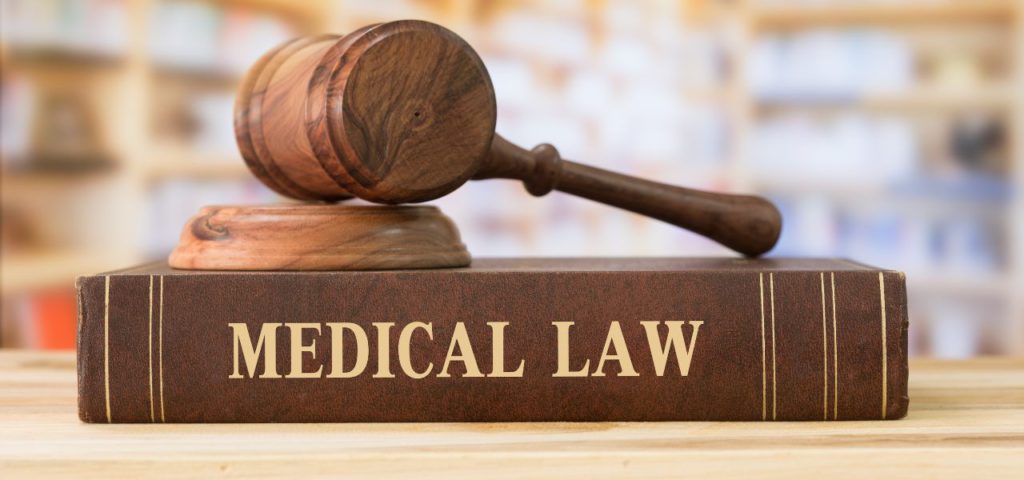The regulatory landscape of Indian medical law and ethics plays a pivotal role in overseeing medical practices, safeguarding patient rights, and influencing policy development within public administrations. In recent decades, the landscape of healthcare legal matters in India has witnessed notable transformations, driven by factors such as the privatization of healthcare, the advent of new technologies, a rise in medical negligence cases, and an increase in litigation.
As a result, medico-legal frameworks have had to develop and widen in order to tackle the recent ethical problems, hold somebody accountable, and rebuild the confidence that has been lost between the patients and the medical profession. Nevertheless, several issues remain, such as the incompleteness of legislation, bad implementation of laws, and insufficient understanding of the issue from healthcare providers and recipients.
India has medical law and some legal ethics, which have key objectives such as protecting the independence and rights of the patients, promoting professional responsibility, and discouraging negligence while at the same time fostering medical ethics.
Good regulation is focused on balancing a patient’s rights, a doctor’s fault, and a hospital’s obligations, among other stakeholders. Numerous courses are available that guide professionals in mastering the medical landscape while staying compliant with the legal frameworks.
Medical Ethics and Human Rights
Ethics in medicine are the rules of conduct that underline the relations between the patients, the physicians, and society on the one hand and the latter’s health care system on the other. It takes a closer look at the moral aspect of the medical practice landscape and acts as a guiding force for professionals. The four fundamental principles of medical ethics are:
- Autonomy: Respecting the patient’s right to informed consent and respect for values and beliefs.
- Beneficence: Providing appropriate care for individuals in their interests and acting for their welfare.
- Non-maleficence: Not harm the patient through commission or omission.
- Justice: Equitable access to healthcare resources, treatment, and opportunities.

Truthfulness, confidentiality, and maintenance of professional integrity are three prima facie principles fundamental to ethical medical practice. These are especially pertinent for India, where socio-cultural practices, commercial interests, and a paternalist-oriented healthcare system compromise patients’ autonomy.
Medical ethics must be maintained to safeguard the human rights of patients and physicians. Some key patient rights include the right to information, consent and integrity, privacy, and confidentiality.
However, there are rights for doctors aimed at ethical practice, including freedom of choice for patients and authority to prescribe treatment and work safely without harm. These rights are defended by medical law and ethics, which is about relating rights with duties and reasonable restrictions. For instance, while a patient has a right to information, a doctor should tell the truth concerning all important facts and things.
Medical Law and Legal Framework
Medical law refers to applying rules, legal principles, and adjudication to the practice of medicine and healthcare. In India, medical law is derived from:
- Constitutional Law: The right to life and personal liberty under Article 21 covers access to healthcare. Other provisions also support health policymaking.
- Statutory Law: Laws passed by the legislature, like the Indian Medical Council Act, that govern medical education and practice.
- Common Law: Laws derived from judicial customs and precedents.
- Contract Law: Governs doctor-patient contractual obligations.
Understanding the multifaceted nature of medical law is crucial for navigating the complexities of healthcare practice in India. By comprehensively grasping these legal frameworks, healthcare professionals can ensure ethical practice and uphold patient rights with confidence and diligence.

Medical Negligence and Malpractice
Medical negligence refers to the failure of a healthcare provider to exercise reasonable care and skill while treating a patient. It results from ignorance, carelessness, inadequate training, disregard for safety, or malicious intentions. Medical malpractice is professional misconduct by doctors and hospitals that violates the standard of care expected and causes harm or injury to patients. Negligence and malpractice make doctors and hospitals liable under civil and criminal law.
When proving medical negligence, the patient has to demonstrate that the doctor owed them a duty of care, failed in fulfilling that duty, and directly caused harm due to that failure. Parameters for assessing a breach of duty of care include legality, general and approved practice, infrastructure, and human resources availability. Factors indicating negligence include lack of qualification or skill, unreasonable delay in treatment, performing unauthorized procedures, using defective equipment, etc.
However, the concept of medical malpractice refers to actions that involve dishonest, unethical, or criminal intentions, such as incorrect certification, breach of secrecy and sexual exploitation of patients, organ trafficking, and prescription fraud, among others.
Medical negligence is not necessarily mal. For example, an unskilled doctor whose mistake was unintentional and led to negative consequences would be considered negligent and not guilty of malpractice.
As the digital world advances at lightning speed, medico-legal courses in India continue to bridge the gap between the medical and legal landscape. These courses are crucial in maintaining health care regulation, protecting patient rights, and advancing proper ethical medical research and practice.
Even though India has progressed immensely by enacting great health laws and regulations, there are numerous gaps in their implementation. It is also necessary to seek ways of dealing with emerging ethical challenges in new medical technology.

In carrying out their day-to-day activities, doctors and hospitals should follow set protocols and legal procedures, be careful, and practice transparency and accountability. Similarly, supportive legal and institutional frameworks should be enhanced by way of legislative reforms, effective enforcement, periodic audits in medical facilities, and sensitizing stakeholders.
Medical law and ethics will continue to develop with developments in biomedicine and changes in the doctor-patient relationship. The act of keeping the proper balance between medical paternalism and patient autonomy while navigating disparate societal values and perceptions will always be a challenge.
While there are several courses available in India, it is essential to choose the one that best boosts your career prospects. The “Legal Mastery for Medicos” course by the prestigious International Medical Board for Business Skills under the guidance of Dr. Arvinder Singh (MBBS, LLB, Oxford Alumni & MBA – IIM Gold Medalist) is one such avenue that leads you to master the understanding of medical laws and ethics. Enroll in this detailed course to get started – “Legal Mastery for Medicos”.


